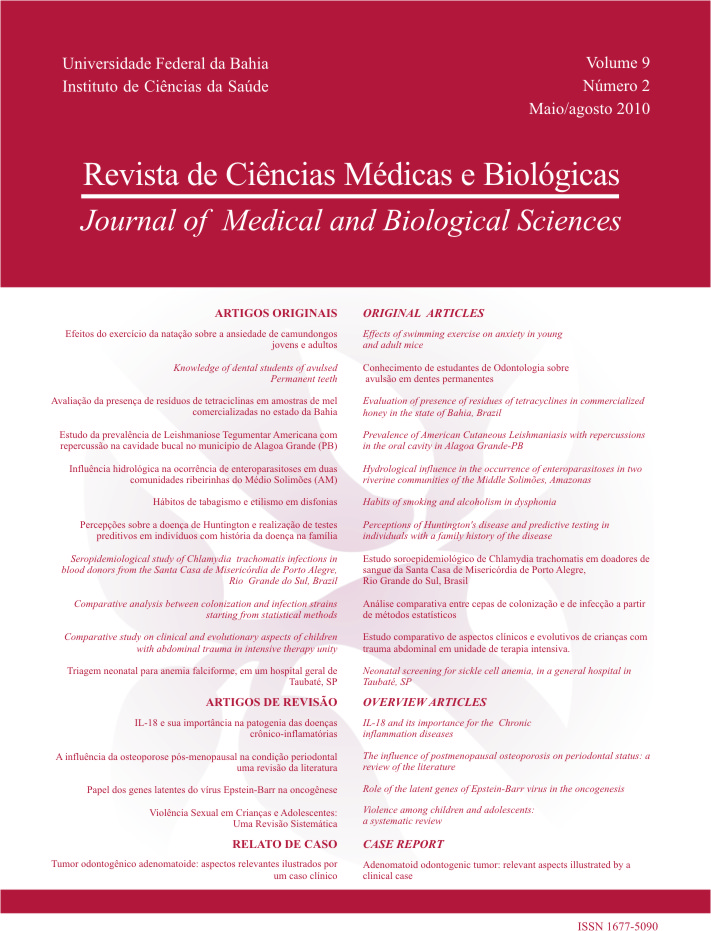IL-18 and its importance for the Chronic inflammation diseases
DOI:
https://doi.org/10.9771/cmbio.v9i2.4950Keywords:
IL-18 – periodontal disease, cytokines – chronic inflammatory diseases.Abstract
The aim of this study was a review about the role of IL-18 role in chronic inflammatory diseases and its impact in the Periodontitis’ development. Chronic inflammation is a patologycal condition characterized by continuous active inflammation response and tissue destruction. Despite of its etiology, the cause must be removed, otherwise inflammation will be everlasting and turned into a chronic state. During inflammatory process some cellular types seems to coexist: inflamatory cels like linfocits, plasmocits and macrofages, take place together with healing factors such as fibroblasts, vessels and budding axonal. IL -18 was originally described as an IFN-γ-inducing Th1 pathway. High levels of IL-18 were detected within the gingival crevicular fluid during periodontitis’ inflammation process. This cytokine has been extensively studied and plays a critical role inducing a severe inflammatory response in major inflammatory disorders. We’ve concluded that IL-18 can either enhances the inflammatory process by acting on Th1cells, induces allergic responses with the Th2 cells or activating osseous healing by GM-CSF pathway on macrophages.Downloads
Download data is not yet available.
Downloads
Published
2010-01-01
How to Cite
Oliveira, T. L., & Figueredo, C. M. (2010). IL-18 and its importance for the Chronic inflammation diseases. Journal of Medical and Biological Sciences, 9(2), 150–156. https://doi.org/10.9771/cmbio.v9i2.4950
Issue
Section
Review Articles
License
The Journal of Medical and Biological Sciences reserves all copyrights of published works, including translations, allowing, however, their subsequent reproduction as transcription, with proper citation of source, through the Creative Commons license. The periodical has free and free access.


